- Instructor: Mamta Dadlani
Smith College's Moodle
Search results: 853
- Instructor: Mamta Dadlani
- Instructor: Alison Berman
- Instructor: Paul Gitterman
- Instructor: Paul Gitterman
- Instructor: Raymond Rodriguez
- Instructor: Kurt White
- Instructor: Kirk Woodring
- Instructor: Kirk Woodring
- Instructor: Mary Olson
- Instructor: Mary Olson
- Instructor: Camille Hall
- Instructor: Camille Hall
- Instructor: Laurie Herzog
- Instructor: Davey Shlasko
- Instructor: Stacey Novack
- Instructor: Cara Segal
- Instructor: Nora Padykula
- Instructor: Nora Padykula
- Instructor: Karen Saakvitne
- Instructor: Kathryn Basham
- Instructor: Denise Brown
- Instructor: Dennis Miehls
- Instructor: Judith Rosenberger
- Instructor: Kathryn Basham
- Instructor: Tina Wildhagen
- Instructor: Arlene Montgomery
- Instructor: Martha Hadley
- Instructor: Ora Nakash
- Instructor: Adrianne Andrews
- Instructor: Martha Hadley
- Instructor: Cynthia Shilkret
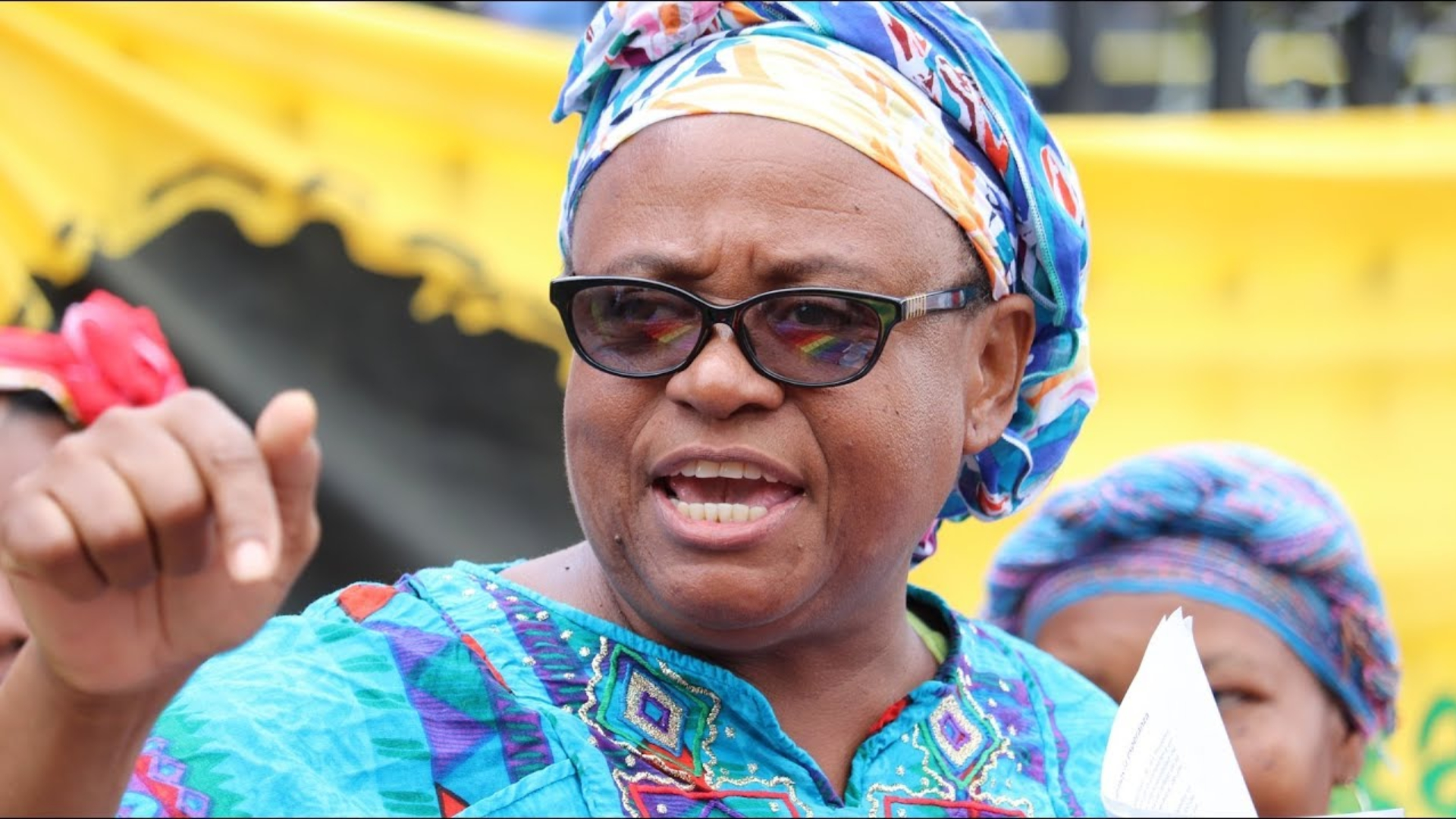
- Instructor: Paul Joseph Lopez Oro
- Instructor: Elizabeth Klarich
- Instructor: Patricia Mangan
- Instructor: Elizabeth Klarich
Welcome to Ant 221- Method, Theory & Practice. Here is the link for the course website.
- Instructor: Elizabeth Klarich
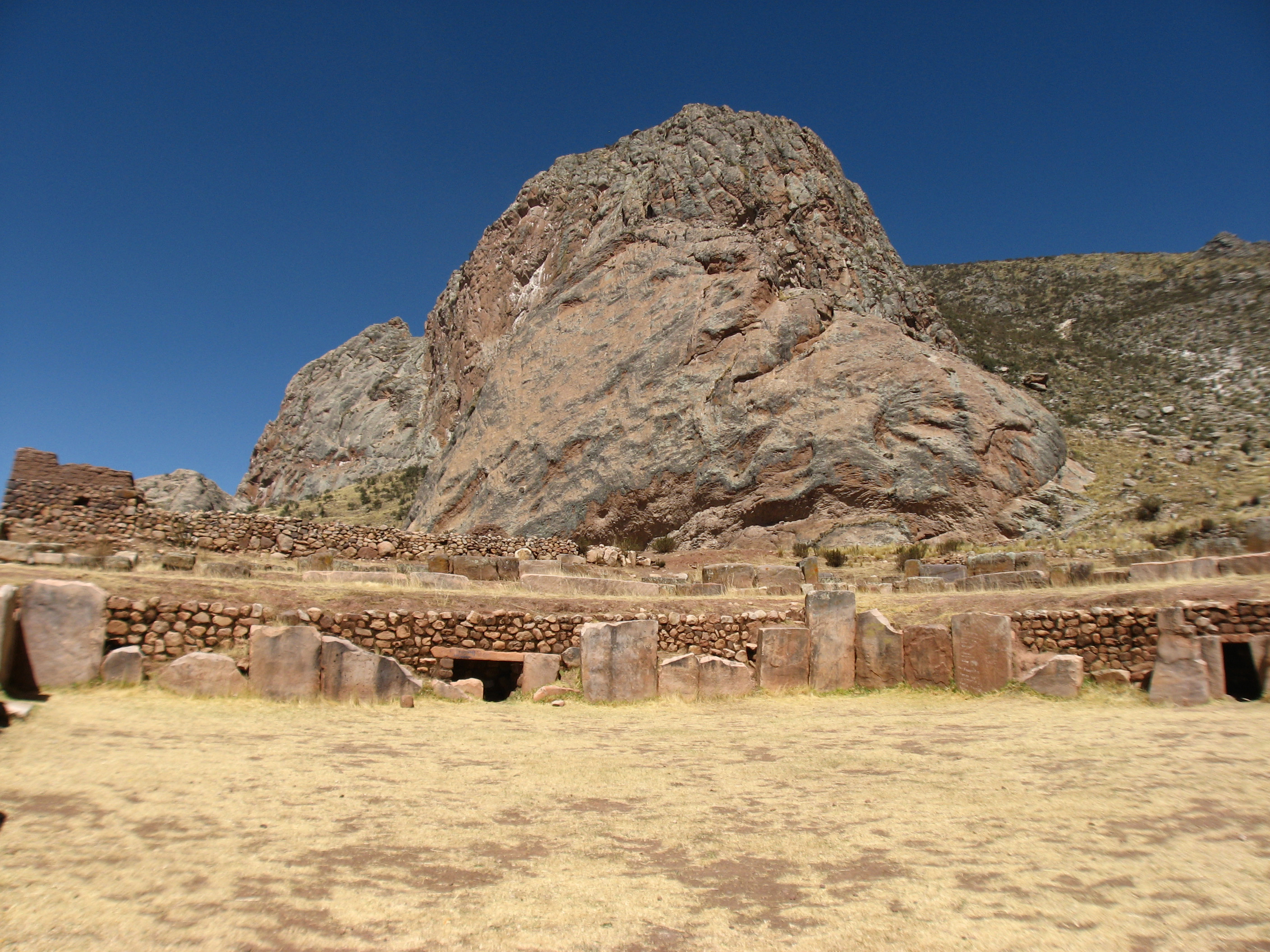
- Instructor: Elizabeth Klarich
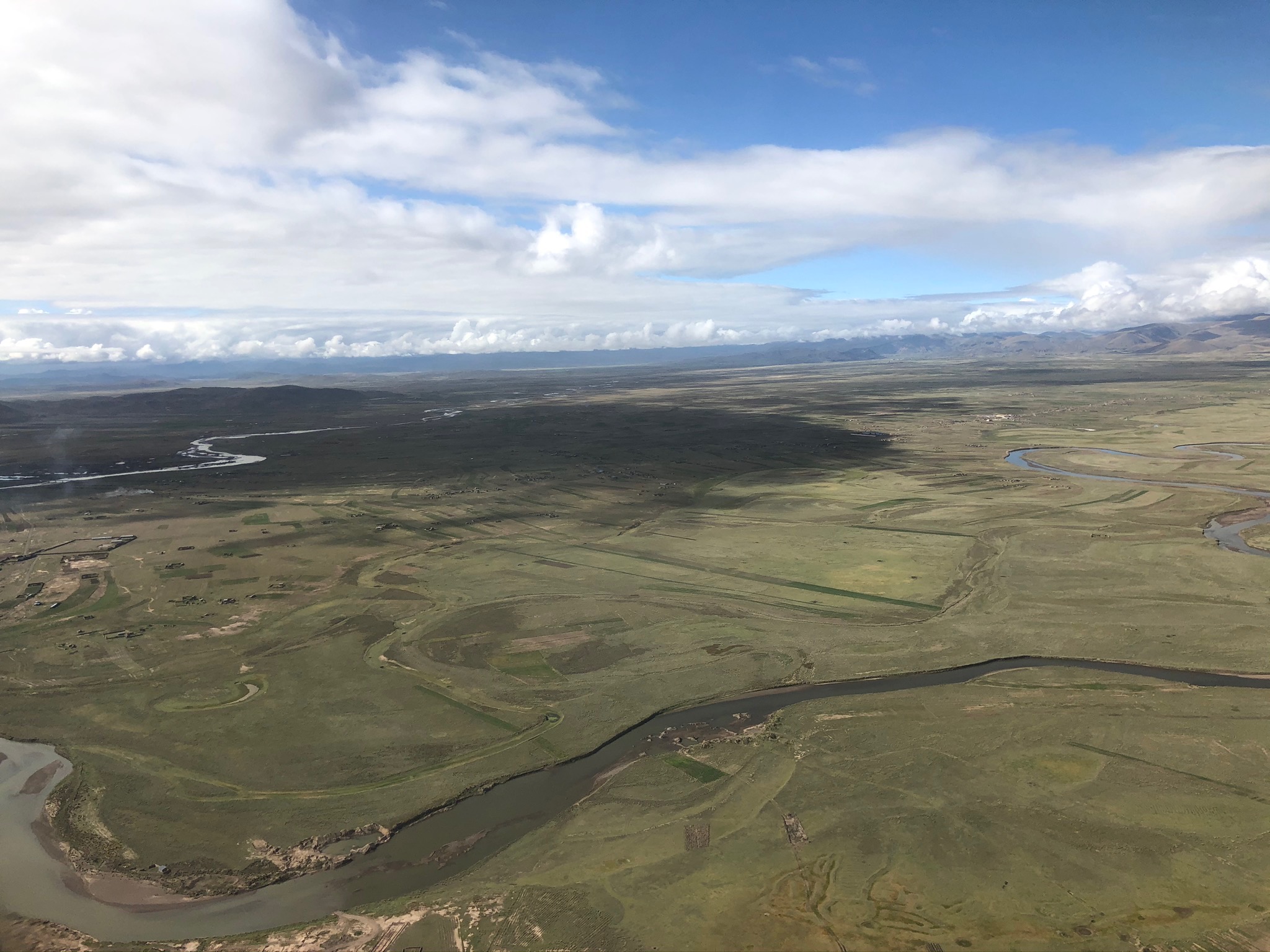
What is the archaeology of food?
This course explores how archaeologists study past foodways—from adaptive and social perspectives—and also asks students to consider the complex relationships between past, present and future food systems. This is a highly interdisciplinary field of study that integrates data sets from environmental science, botany, zoology, human anatomy, and geochemistry, among others. It is also a field that addresses a diversity of economic, political, and social issues from an explicitly anthropological perspective. In other words, what can we understand about past human behavior and lifeways by analyzing charred plant remains, abandoned cooking areas, old pottery, and ancient trash dumps? To address these questions, the course is divided into three units: (1) an overview of the archaeology of food, focusing on both methods and theory; (2) a case study on maize, examining its domestication and spread; and (3) a collaborative exploration of global plant histories, highlighting the Smith College collections.
- Instructor: Elizabeth Klarich
- Instructor: Fernando Armstrong-Fumero
- Instructor: Caroline Melly
- Instructor: Fernando Armstrong-Fumero
- Instructor: Patricia Mangan
- Instructor: Fernando Armstrong-Fumero
- Instructor: Fernando Armstrong-Fumero
- Instructor: Fernando Armstrong-Fumero
- Instructor: Fernando Armstrong-Fumero
- Instructor: Fernando Armstrong-Fumero
- Instructor: Fernando Armstrong-Fumero
- Instructor: Fernando Armstrong-Fumero
- Instructor: Caroline Melly
- Instructor: Frazer Ward
- Instructor: Frazer Ward
- Instructor: Barry Moser
- Instructor: Barry Moser
- Instructor: Barry Moser
- Instructor: Barry Moser
- Instructor: Barry Moser
- Instructor: Barry Moser
- Instructor: Barry Moser
- Instructor: Barry Moser
- Instructor: Barry Moser
- Instructor: Barry Moser
- Instructor: Barry Moser
- Instructor: Barry Moser
- Instructor: Barry Moser
- Instructor: Kenneth Botnick
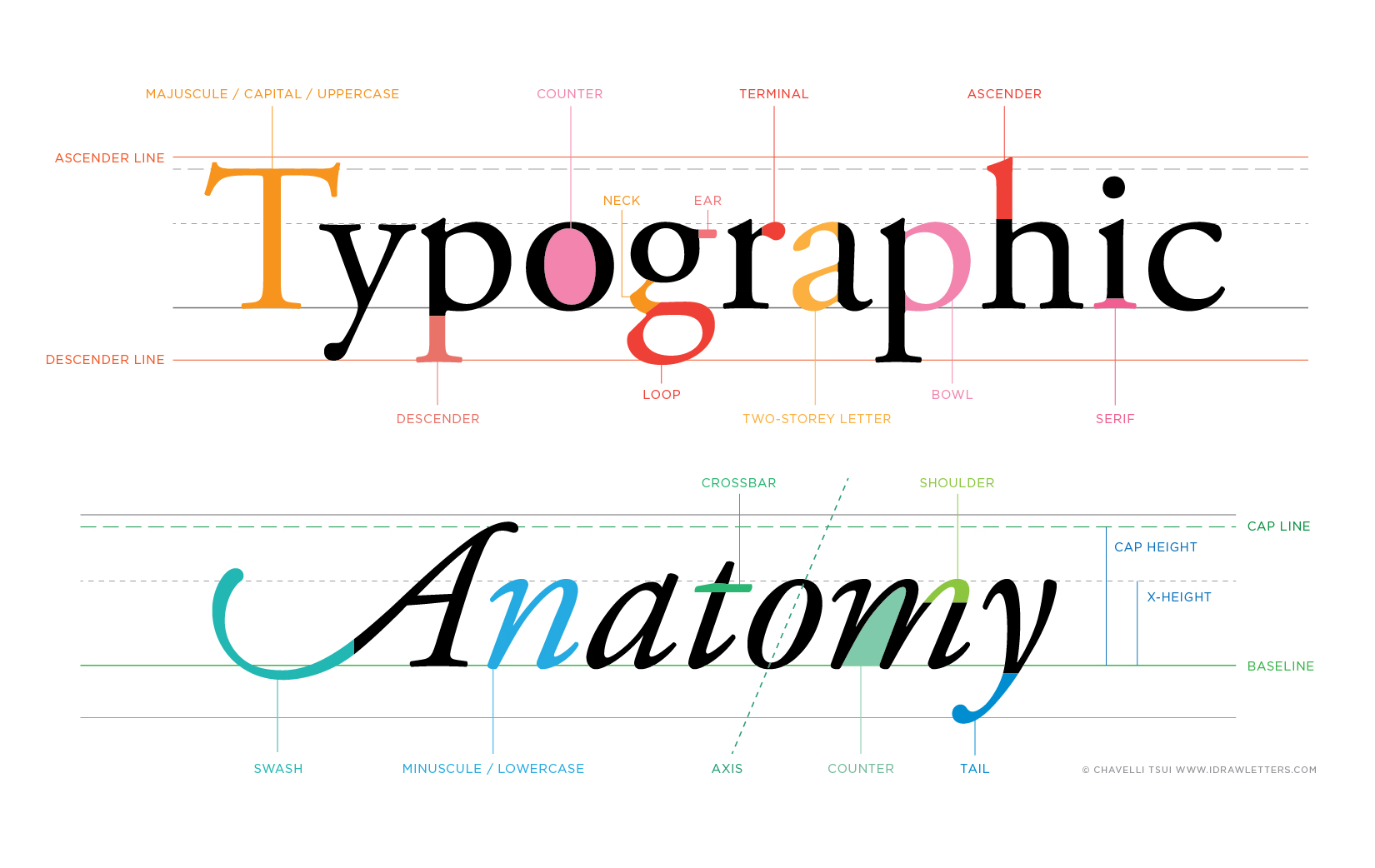
- Instructor: Barry Moser
- Instructor: Barry Moser
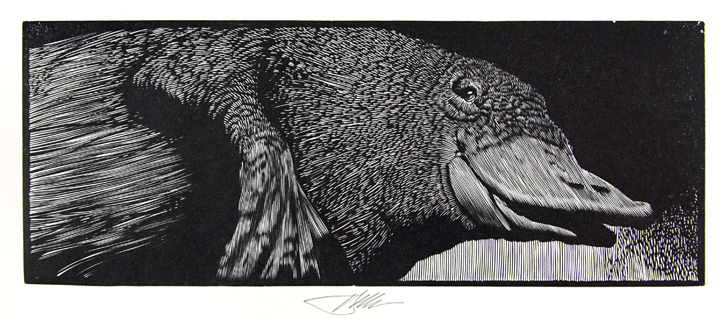
- Instructor: Lucas Cowan
- Instructor: Barry Moser
- Instructor: Martin Antonetti
- Instructor: Barry Moser
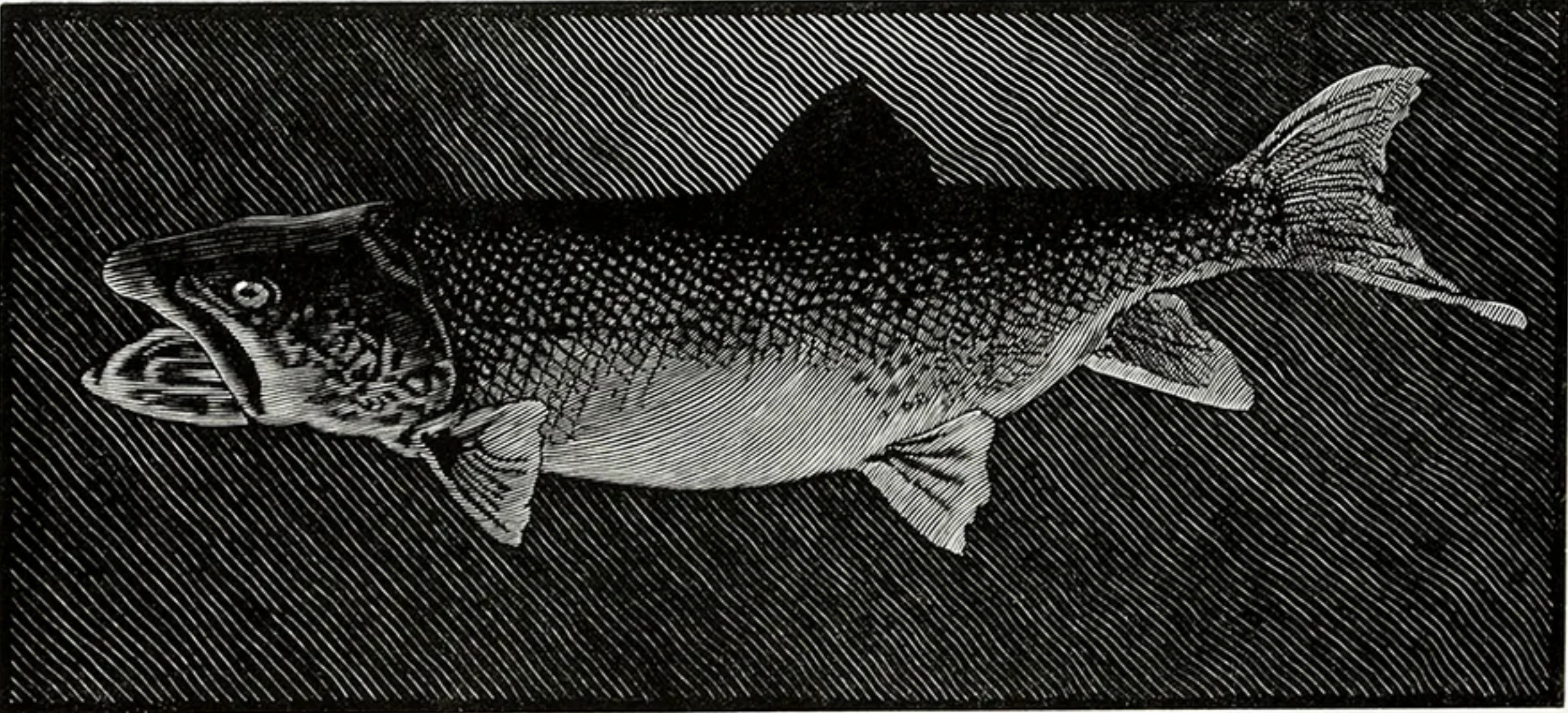
(1) Investigates the structure of the book as a form; (2) provides a brief history of the Latin alphabet and how it is shaped calligraphically and constructed geometrically; (3) studies traditional and non-traditional typography; and (4) practices the composition of metal type by hand and the printing of composed type on the SP-15 printing presses. A voluntary introduction to digital typography is also offered outside class.
- Instructor: Lucas Cowan
- Instructor: Barry Moser
- Instructor: Barry Moser
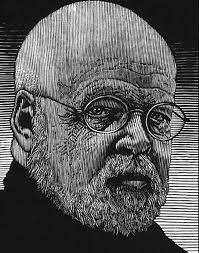
- Instructor: Martin Antonetti
- Instructor: Lucas Cowan
- Instructor: Barry Moser
- Instructor: Alexis Callender
- Instructor: Barry Moser
- Instructor: Joseph Yeager
- Instructor: Anna Botta
- Instructor: Anna Botta
- Instructor: Anna Botta
- Instructor: Anna Botta
- Instructor: Anna Botta
- Instructor: Anna Botta
- Instructor: Joseph O'Rourke
- Instructor: Joseph O'Rourke
- Instructor: R. Jordan Crouser
- Instructor: Pablo Frank Bolton
- Instructor: Pablo Frank Bolton
- Instructor: Pablo Frank Bolton
- Instructor: Pablo Frank Bolton
- Instructor: Pablo Frank Bolton
- Instructor: Pablo Frank Bolton
- Instructor: Pablo Frank Bolton
- Instructor: R. Jordan Crouser
- Instructor: Pablo Frank Bolton
- Instructor: Pablo Frank Bolton
- Instructor: R. Jordan Crouser
- Instructor: Pablo Frank Bolton
- Instructor: John Ridgway
- Instructor: Lester Tomé
- Instructor: Lester Tomé
- Instructor: Lester Tomé
- Instructor: Lester Tomé
- Instructor: Michael Vargas
- Instructor: Lester Tomé
- Instructor: Rodger Blum
- Instructor: Rodger Blum
- Instructor: Lester Tomé
- Instructor: Rodger Blum
- Instructor: Rodger Blum
- Instructor: Lester Tomé
- Instructor: Rodger Blum
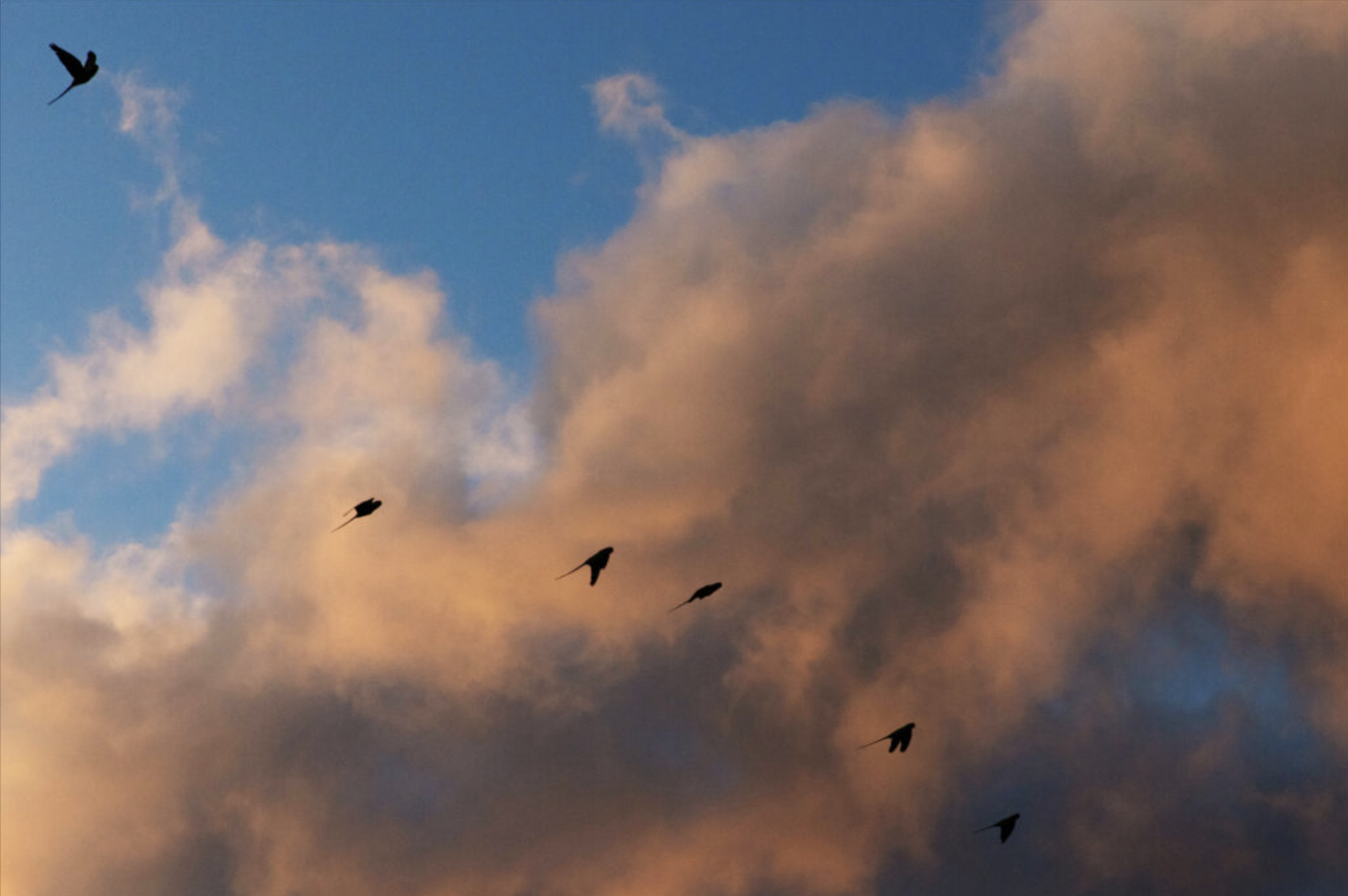
- Instructor: Angie Hauser
- Instructor: Jake Meginsky
- Instructor: Jake Meginsky
- Instructor: Lester Tomé
- Instructor: Lester Tomé
- Instructor: Rodger Blum
- Instructor: Tori Lawrence
- Instructor: James Miller
- Instructor: James Miller
- Instructor: James Miller
- Instructor: James Miller
- Instructor: James Miller
- Instructor: James Miller
- Instructor: James Miller
- Instructor: James Miller
- Instructor: James Miller
- Instructor: Mahnaz Mahdavi
- Instructor: James Miller
- Instructor: James Miller
- Instructor: James Miller
- Instructor: Sika Berger
- Instructor: Roisin O'Sullivan
- Instructor: Roisin O'Sullivan
- Instructor: Samuel Intrator
- Instructor: Janice Gatty
- Instructor: Janice Gatty
- Instructor: Janice Gatty
- Instructor: Janice Gatty
- Instructor: Janice Gatty
- Instructor: Janice Gatty
- Instructor: Hannah Lord
This course introduces various theories of counseling and their applications to children, adolescents and families. Behaviors that signal a need for attention and counseling are discussed. Students gain knowledge about themselves as individuals and learners, and learn how to listen actively to others.
- Instructor: Denise Green
- Instructor: Shannon Audley
- Instructor: Judith Cardell
- Instructor: Kris Dorsey
- Instructor: Sue Froehlich
- Instructor: Kris Dorsey
- Instructor: Judith Cardell
- Instructor: Susan Voss
- Instructor: Kris Dorsey
- Instructor: Judith Cardell
- Instructor: Kris Dorsey
- Instructor: Susan Voss

- Instructor: Judith Cardell
- Instructor: Judith Cardell

- Instructor: Judith Cardell
- Instructor: Sue Froehlich

- Instructor: Judith Cardell
- Instructor: Judith Cardell
- Instructor: Susan Voss
- Instructor: Susan Voss
- Instructor: Judith Cardell
- Instructor: Kris Dorsey
- Instructor: Kris Dorsey
- Instructor: Judith Cardell
- Instructor: Susan Voss
- Instructor: Kris Dorsey
- Instructor: Kris Dorsey
- Instructor: Judith Cardell
- Instructor: Judith Cardell
- Instructor: Judith Cardell
- Instructor: Susan Voss
- Instructor: Judith Cardell
- Instructor: Judith Cardell

- Instructor: Judith Cardell
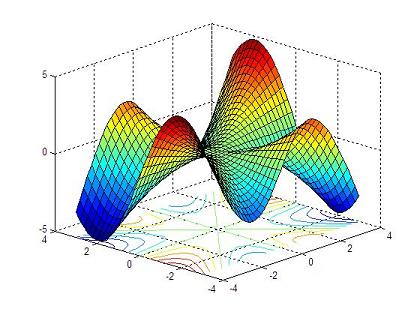
- Instructor: Judith Cardell
- Instructor: Andrea Stone
- Instructor: Andrea Stone
- Instructor: Andrea Stone
Welcome to Teaching Literature! This course is designed to provide meaningful opportunities for diving into how and why we teach literature by experimenting with connecting theory and practice and crafting inclusive, culturally and linguistically sustaining, and evidence-based lesson plans. We will workshop lessons in class during which we will practice teaching, receive and give feedback, and reflect on our teaching practices and lessons. Our work supports and grounds our major assignments: a statement of teaching philosophy, lesson plans, and a unit plan. Outside of class, you will explore a variety of pedagogical content that will inform your teaching philosophy and lesson design.
Please see here for the course syllabus. Culturally Responsive Approaches to the Teaching of Literature in Secondary English Classrooms
- Instructor: Anne-Marie Fant
- Instructor: Alexandra Keller
- Instructor: Alexandra Keller
Gender, Sex, and Sexuality in Russian Culture
Ruth Averbach
Pierce Hall, Room 104
Course Description
In June 2013, President Vladimir Putin signed into law a ban on ‘propaganda’ that advocates for non-traditional sexual relationships, homosexuality, and transgenderism. Despite this, Russia has at times in its history been a bastion of gender and sexual diversity. Nevertheless, Russia’s queer and trans heritage is often neglected in scholarly and popular conceptions of the country. Students in this course examine Russia’s queer and trans history through literature, visual arts, and music. Topics include the history of “homosexuality” and “heterosexuality,” the medical history of transsexuality, gay and lesbian subjectivities, trans autobiography and fiction, and the ethics of queer scholarship.
Course Objectives
This seminar is designed to achieve several goals. First, this course develops students’ critical thinking and writing skills. Students will learn how to outline, draft, and revise papers, effectively summarize literary texts, analyze specific themes in a work, contextualize artistic works in a proper cultural and historical context, understand and respond to critical works, and construct a short research paper with a coherent thesis and clear line of argumentation. Second, students will gain a broad overview of Queer and Trans Russian history and culture and engage with understudied source materials, perspectives and experiences concerning gender, sex, and sexuality.
Course Requirements
Assignments
Weekly reading responses (appx. 250 words)
First Paper: Summary of a Literary Text (3 pages)
Second Paper: Thematic Analysis (5 pages)
Third Paper: Research and Argumentation (7 pages)
Draft paper due one week before final version
Students will read and respond to a classmate’s paper within a week of turning in final drafts
Revisions will be turned in a week after receiving their peer review and instructor feedback
Due dates for all assignments are listed in the reading schedule
Grading Rubric
Attendance and Participation – 20%
Reading Responses – 20%
First Paper – 15%
Second Paper – 15%
Third Paper Presentation – 10%
Third Paper – 20%
Course Expectations
It is essential for students to complete assigned readings, attend course meetings, and contribute to class discussions. Feel welcome to use electronic devices, but do not let them distract others or yourself from the lesson. Please let Ruth know as soon as possible if you are ill or must miss class for any reason.
Academic Integrity
Students are expected to uphold all Smith College policies on academic integrity. AI is only acceptable for proofreading for grammar, punctuation, and spelling. All outside sources used in written assignments must be cited properly.
Accommodations
If you need any accommodations to participate in and complete the course, please contact the Accessibility Resource Center (College Hall 104; arc@smith.edu; 413-585-2071) and let Ruth know how she can best serve your needs.
COURSE READING SCHEDULE
Week II: Sexuality and Russian Civilization
M: (De)legalize Gay
Igor Kon, The Sexual Revolution in Russia (11-38)
Foucault, “The Birth of Homosexuality” from The History of Sexuality, vol. II
Olearius, The Travels of Olearius in 17th Century Russia
W: Is Gender, Sex, and Sexuality Universal?
Xenia the Servant of God, or Andrei Fyodorovich the Holy Fool
Benjamin, excerpts from The Transsexual Phenomenon
Mayhew, “Holy Foolishness and Gender Transgression in Russian Hagiography” (optional)
Week III: Is Homosexuality a Psychological Complex?
M: The Endless Anxieties of Nikolai Gogol
Gogol, “The Nose”
Gogol, “Ivan Fyodorovich Shponka and His Aunt”
Freud, excerpts of “Certain Neurotic Mechanisms in Jealousy, Paranoia, and Homosexuality”
Freud, letter to father of a homosexual boy
W: H-o-t t-o Gogol: Gay Iconography
Gogol, The Overcoat
Gogol, “Nevsky Prospect”
Gogol, “Woman”
First Paper Draft Due Sunday
Week IV: Aleksandr Aleksandrov: Russia’s First Transsexual Writer
M: Conceptualizing Transsexual Autobiography
Aleksandrov, The Cavalry Maiden, Chapters I-VI
Zirin, “Introduction” to English translation of The Cavalry Maiden
W: The Unmaking of a Man
Aleksandrov, The Cavalry Maiden, Chapters VII-XIII
First Paper Due Sunday
Week V: Aleksandrov’s Fiction
M: Trans Men and Misogyny
Aleksandrov, Nurmeka
Zazanis, “On Hating Men (and Becoming One Anyway)”
W: Colonialism and the Transsexual Empire
Aleksandrov, Nurmeka
Puar, excerpts from Terrorist Assemblages (optional, Ruth will summarize)
First Paper Peer Review Notes Due
Week VI: Between Sex and Sexuality
M: Compulsory Heterosexuality
Gan, “The Ideal”
Rich, “Compulsory Heterosexuality and Lesbian Existence”
W: Compulsory Homosexuality
Pomialovsky, Seminary Sketches
First Paper Revisions Due Sunday
Week VII: Becoming ‘Gay’
M: Homosexual or Gay?
Kuzmin, selected poems
Kuzmin, Wings
Somov, selected paintings
W: Is Sexuality an Identity or a Behavior?
Kuzmin, Wings (finish)
Rozanov, excerpts from “People of the Moonlight”
Week VIII: Becoming ‘Gay’ (Cont’d); Lesbianism and Gender Expression
M: Lesbian Gender and Sexuality
Zinovieva-Annibal, The Tragic Menagerie
W: Lesbian Gender and Sexuality (cont’d)
Zinovieva-Annibal, The Tragic Menagerie (continue)
Second Paper Draft Due
Week IX: Lesbianism and Gender Expression (Cont’d)
M: What is the Difference Between Lesbians and (Trans) Men?
Zinovieva-Annibal, The Tragic Menagerie (finish)
Shrier, excerpts from Irreversible Damage
Wittig, excerpts from The Straight Mind (optional, Ruth will summarize)
W: Sapphic Verse
Gippius, selected poems
Parnok, selected poems
Tsvetaeva, selected poems
Sappho, selected poems
Second Paper Due
Week X: Pre-Revolutionary and Revolutionary Sexuality
M: Is Male Heterosexuality Gay?
Gorky, “26 Men and a Girl”
Mulvey, excerpts from Visual Pleasure
W: Is Homosexuality Communist?
Trifonov, selected poems
Kharitonov, “One Boy’s Story” and “Alyosha-Serezha”
Harry Whyte, letter to Stalin
Second Paper Peer Review Notes Due
Week XI: Transsexuality, Soviet Style
M: Transsexuality and Medicine
Gill-Peterson, excerpts from Histories of the Transgender Child
Benjamin, The Transsexual Phenomenon
Blanchard, excerpts from articles on transsexual etiology
Kalnberz, excerpts from My Time
W: Is Gender a Social Duty?
Hammer & Sickle (1994)
Bogdan Popa, Decentering Queer Theory
Second Paper Revisions Due
Week XII: Late and Post-Soviet Sexuality
M: Late Soviet Sexuality
Past, “No Offense in Love”
Rybikov, “The Lay of the Gay Slavs”
Fiks, selected poems and photographs
W: Post-Soviet Tolerance and Intolerance in Popular Culture
t.A.t.U, 200km/h in the Wrong Lane
Strykalo, “vse resheno”
2013 Anti-Gay Propaganda bill
Selections of recent American anti-gay and trans bills
Third Paper Outlines Due
Week XIII: Trans Art in an Age of Reaction
M: Between Homosexuality and Transsexuality
Outlaw (2019)
W: Being Trans When Being Trans is Illegal
Letter, A City Flower
Selections, What Is a Woman?
Dugin, selections from The Fourth Political Theory and interview with Tucker Carlson
Third Paper Drafts Due Sunday
Week XIV: Conclusion and Presentations
M: Student Presentations
Students will present their final projects in progress in a conference format
W: Conclusion
Student presentations will continue
Concluding lecture
Third Papers Due (one week after final date)
- Instructor: Ruth Averbach
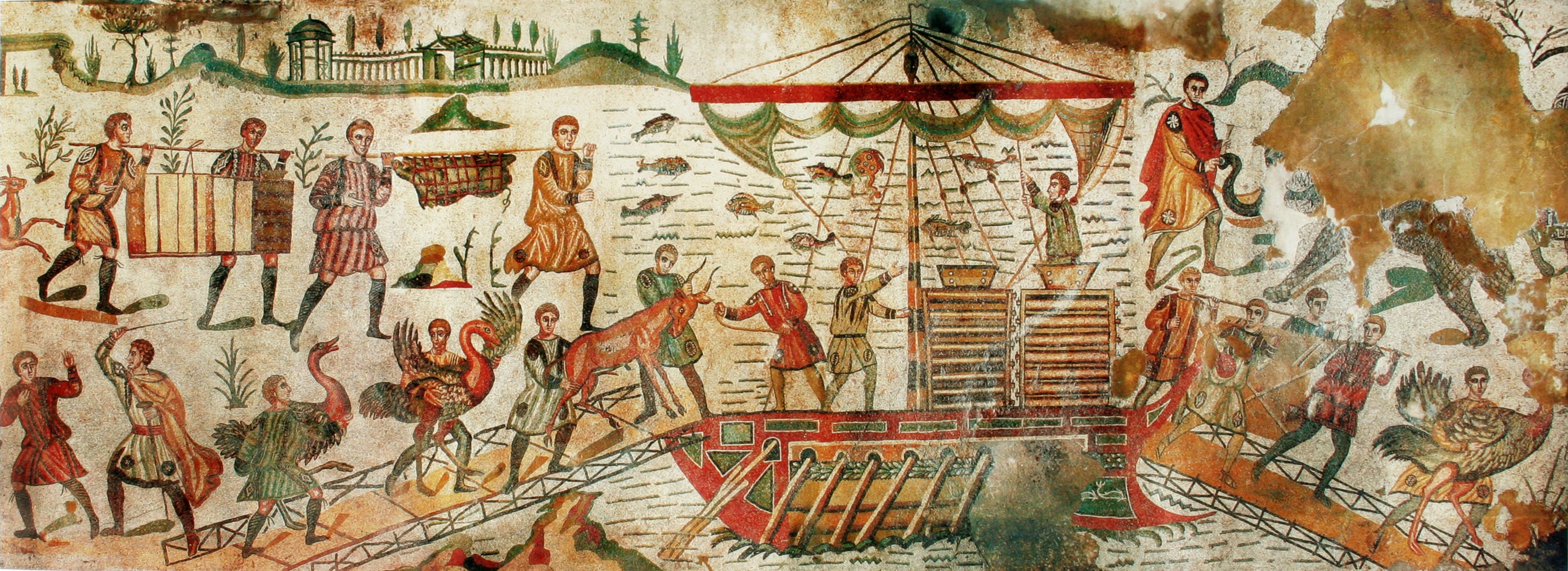
In his book Totemism, Claude Lévi-Strauss wrote, “species are chosen not because they are good to eat, but because they are good to think with.” This course takes up this issue in the context of ancient Greece and Rome, examining how ancient ideas about non-human animals inform our own. Beginning with Homer, we will consider animals as they appear in various Greek and Latin texts as foods, friends, tools, symbols and more. Ancient texts will be supplemented with modern scholarship and theory as we explore how humans and animals have been distinguished and connected, as well as why thinking about animals is so crucial to human culture.
- Instructor: Colin MacCormack
The ideal of American citizenship has long laid claim to universal inclusivity and openness: citizenship, as both a legal status and a political-cultural identity, are supposedly accessible to all individuals within the polity. Based on a robust concept of freedom, and grounded in a fundamental notion of equal personhood, United States citizenship promised a form of political belonging free from the kind of status restrictions that defined citizenship in the aristocracies of 18th and 19th century Europe.
Yet the history of American citizenship is one marked by the exclusion, domination, and disenfranchisement of various groups defined as racially other, and thus outside the bounds of citizenship. How do we understand the coexistence of claims to equal democratic citizenship in the U.S. alongside the historical realities of enslavement, extermination, and other forms of racial violence? What does it mean to be an American citizen, and how as that meaning been shaped by the formation of race across space and time? Is citizenship a universal concept – open, in principle, to anyone? Or is it an exclusive concept – reserved for a select few? If racial injustice is not separable from citizenship, but somehow productive of it – that is, if racist structures shape how citizenship is interpreted and practiced – then can American citizenship be remade along more egalitarian lines?
This course will interrogate these questions, asking how race and citizenship have constituted each other over time. Through readings in political theory, American political development, history, and sociology, we will examine dimensions of American citizenship that emerge with, through, and against the creation of racial hierarchies: citizenship as a legal status, as a political-cultural identity, as civic responsibilities and cultural norms, and as a particular arrangement of institutional practices that define who is “inside” and “outside” the political community. Though this course focuses on the political theory of citizenship and not a historical survey, texts will engage with indigenous sovereignty, colonial America, slavery and the antebellum period, Jim Crow, and immigration through the 19th and 20th centuries. While much of the course is devoted to exploring the historical production of “Black” and “white” as categories of political belonging, we will also consider how notions of race and citizenship have shifted and developed through the experiences of First Nations and immigrant groups.
Throughout our discussions, we will also examine how dominated and oppressed racial groups have mobilized by both adopting and challenging prevailing notions of what it means to be a citizen. At the end of the course, we will end by considering how American citizenship might be refashioned in order to promote and sustain equal freedom and racial justice.
- Instructor: Erin Pineda
COLLOQUIUM: REFUGEE POLITICS
In this course, we will examine the political dynamics of refugees and the changing nature of forced migration. Millions of people have been forced to move from their homes due to different factors including persecution, armed conflict, natural disasters, socioeconomic deprivation, and development projects. By exploring the nature, causes, and consequences of contemporary forced migration waves, this course will examine the relationship between forced migration and politics in the modern international system. The course provides a foundational understanding of and critical engagement with key theories, concepts, issues, and debates in refugee studies. In addition to international relations theory, we will also focus on historical studies, international law, migration and refugee studies, and anthropological approaches to displacement. Participants will engage in academic debates and watch documentaries/films on forced migration. Although special attention is devoted to the Middle East, other cases from different parts of the world will also be examined.
- Instructor: Zümray Kutlu
- Instructor: Patrick Coby
- Instructor: Patrick Coby
- Instructor: Patrick Coby
- Instructor: Patrick Coby
- Instructor: Patrick Coby
- Instructor: Patrick Coby
- Instructor: Patrick Coby
- Instructor: Gary Lehring
The political thought of the 19th century was directed towards understanding and shaping the clashing waves of human emancipation and reaction that defined the era. From the republican revolutions at the end of the 18th century to the struggles over labor at the end of the 19th, powerful forces both receded in the face of struggles for freedom and subsequently overwhelmingly flowed against them. All the while, political thinkers – themselves often engaged in these struggles – attempted to describe and shape these clashes to their own ends. For them, this era brought forth a “world that is totally new” (Tocqueville) and a condition in which the human “spirit has broken with the world it has hitherto inhabited and imagined” (Hegel). Accordingly, 19th century political theorists took it as their task to develop a new, modern understanding of political life, which would not “draw its poetry from the past, but only from the future” (Marx). Struggles for freedom opened the 19th century, but what would be the meaning and extent of that freedom?
In this course, we will read classic texts by some of these thinkers from the European and American contexts by focusing on four major themes which define the four parts of the course. The first part of the course will read three theorists who respectively celebrated, rejected, or reconciled themselves to the new political world which followed the French Revolution. The next part will turn our attention to the American context. After two short pieces by European theorists that attempt to define the spirit of modernity, we will read political texts from three figures of the Transcendentalist movement who each attempted to understand the spiritual life of the individual in modern politics. The third part of the course will analyze the tensions of freedom and slavery in 19th century America, one of the most important settings for the struggle over the meaning of modern freedom. Finally, the last part will take up texts that consider the meaning and possible extent of emancipation, particularly with respect to labor and gender. During each of these parts we will be concerned with the same set of questions that beguiled the 19th century, but with different priority given in each module. What is the spirit of revolution? What is the meaning of modernity? What is the full experience of freedom and why do some claim that it requires the unfreedom of others? And how would it be possible to bring about a full, complete form of human emancipation? These questions are not be merely antiquarian but are also aimed towards gaining a better understanding of the tensions of freedom and unfreedom which still persist in our own world today.
Finally, the assignment structure for this course will include regular participation, four short reflective essays, and a research paper. Please see the tentative syllabus uploaded here for more details.
- Instructor: Kye Barker
- Instructor: Kye Barker
- Instructor: Gary Lehring
- Instructor: Gary Lehring
- Instructor: Nathan DuFord
- Instructor: Joshua Wood
- Instructor: Mlada Bukovansky
- Instructor: Lisa DeCarolis-Osepowicz
- Instructor: Howard Gold
- Instructor: Alice Hearst
- Instructor: Gary Lehring
- Instructor: Marc Lendler
The idea that citizens are obliged to obey the laws under which they live is an old one, but it is not clear on what basis this obligation rests or if it ever obtains in the real world conditions of complex societies, imperfect regimes, and unintended consequences – let alone systemic injustice, social inequality, political domination, and other forms of oppression. Indeed, the practices of dissent, protest, disobedience, and resistance are at least as old – and are arguably no less foundational than obligation to concepts of political authority, legitimacy, and democracy. Moreover, examining the history of democracy seems to reveal that illegal, disruptive, and sometimes violent movements have played a significant role in contesting injustice, confronting inequality, and democratizing institutions. On the other hand, history also reveals to us the way that the upheaval of collective resistance can also give way to brutality, bloodshed, and chaotic destabilization.
How do we make sense of the idea of political obligation in the face of injustice? What role does disobedience play in political society? How do we make room for dissent, disobedience, and resistance while remaining attentive to the political, ethical, and moral risks that such actions carry? What are the political and ethical obligations to which we might be subject as citizens of a polity? What is the depth of obedience and what are the bounds of dissent? What is the nature of injustice, and what kinds of injustices demand dissenting action?
This course will take up these questions through an examination and discussion of core texts in political theory alongside works written by (and about) some of the most influential historical practitioners of civil disobedience: Henry David Thoreau on the subject of conscience in the face of chattel slavery; MK Gandhi on nonviolence in the fight for Indian independence; and Martin Luther King on segregation, law, and racial injustice. Throughout the semester we will consider the ethical and tactical problems posed by disobedience, protest, resistance, and action – and how theorists’ and practitioners’ views of injustice, responsibility, law, action, and ethics relate to their ideas about obligation, injustice, and disobedience. We will end the course by discussing the ethical and political stakes of civility, as well as violence and nonviolence.
- Instructor: Erin Pineda
- Instructor: Jeremy Wolf
- Instructor: Howard Gold
- Instructor: Gary Lehring
- Instructor: Gary Lehring
- Instructor: Gary Lehring
- Instructor: Erin Pineda
- Instructor: Kye Barker
- Instructor: Kye Barker
- Instructor: Kye Barker
- Instructor: Nathan DuFord
- Instructor: Nathan DuFord
- Instructor: Seth Dunn
- Instructor: Stephen Bradley
- Instructor: Seth Dunn
- Instructor: Zev Ganz
- Instructor: Shannon Sennott
- Instructor: Autumn Bermea
- Instructor: Seth Dunn
- Instructor: Shannon Sennott
- Instructor: Zev Ganz
- Instructor: Kelly Mandarino
- Instructor: Stephen Bradley
- Instructor: Stephen Bradley
- Instructor: Shannon Sennott
- Instructor: Seth Dunn
- Instructor: Autumn Bermea
- Instructor: Seth Dunn
- Instructor: Seth Dunn
- Instructor: Rebecca Ross
- Instructor: Rebecca Ross
- Instructor: Kelly Mandarino
- Instructor: Zev Ganz
- Instructor: Shannon Sennott
- Instructor: Noa Ashman
- Instructor: Shannon Sennott
- Instructor: Liat Shklarski
- Instructor: Shveta Kumaria
- Instructor: Torleif Persson
- Instructor: Giovanna Bellesia
- Instructor: Giovanna Bellesia
- Instructor: Giovanna Bellesia
- Instructor: Eric Snyder
- Instructor: Jim Henle
- Instructor: Jim Henle
- Instructor: Steven Moga
- Instructor: Reid Bertone-Johnson
1) Introduction to proofs and formal mathematical writing. This will prepare you for more advanced courses in mathematics.More generally, you will develop skills that are useful in all areas of life, including your ability to think logically, structure arguments clearly, and communicate your ideas effectively.
(2) Introduction to three areas of mathematics that lie outside of the standard calculus track:
(a) Set Theory and Combinatorics, (b) Number Theory, (c) Graph Theory
- Instructor: Rajan Mehta
- Instructor: Ileana Vasu
W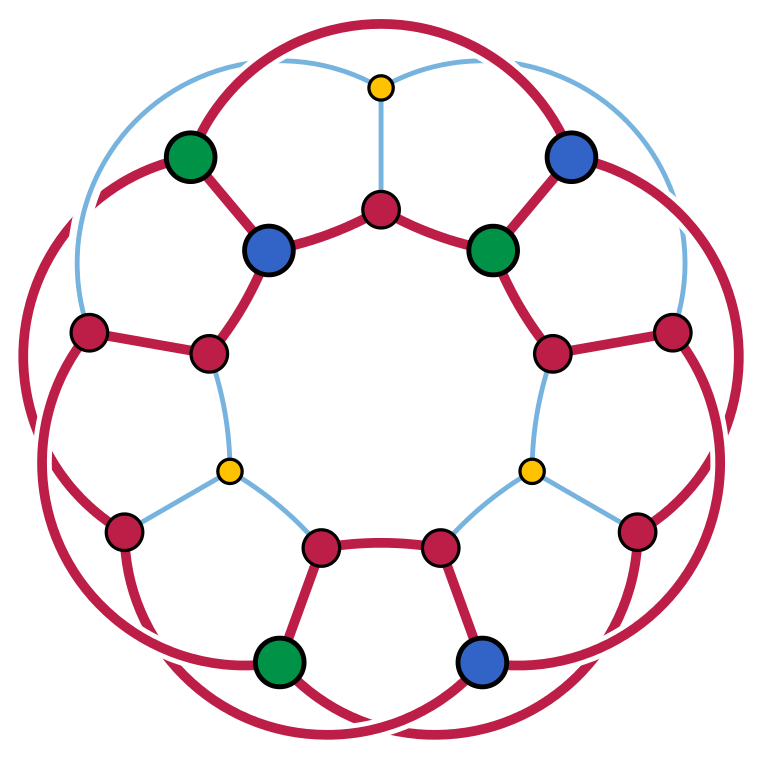 elcome to MTH 153! We're going to be learning about discrete mathematics this
semester, which means that we get to talk about a variety of different
subjects like combinatorics, number theory, and graph theory. We're also
going to be talking about mathematical logic and proof-writing, and
spending some time learning to typeset math using LaTeX code.
elcome to MTH 153! We're going to be learning about discrete mathematics this
semester, which means that we get to talk about a variety of different
subjects like combinatorics, number theory, and graph theory. We're also
going to be talking about mathematical logic and proof-writing, and
spending some time learning to typeset math using LaTeX code.
Looking forward to working with you all!
- Zach
- Instructor: Zachary Winkeler
- Instructor: Rajan Mehta
- Instructor: Rajan Mehta
- Instructor: Bianca Thompson
- Instructor: Geremias Polanco
- Instructor: Tian An Wong
- Instructor: Rajan Mehta
- Instructor: Geremias Polanco
- Instructor: Rajan Mehta
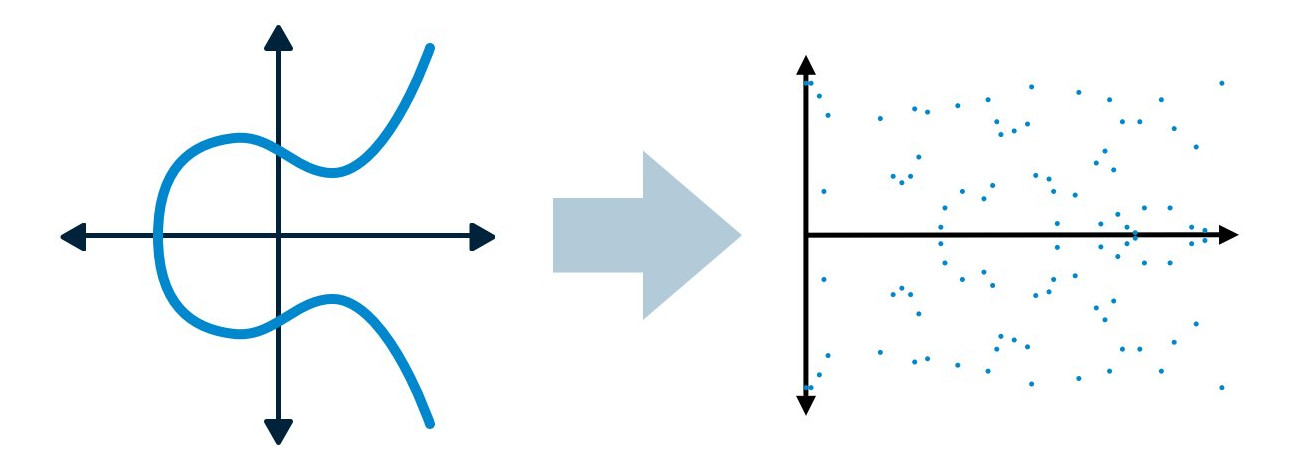
- Instructor: Rajan Mehta
- Instructor: Geremias Polanco
- Instructor: Geremias Polanco
- Instructor: David Meyer
- Instructor: Gwen Spencer
- Instructor: Gwen Spencer
- Instructor: Zachary Winkeler
- Instructor: Theodosios Douvropoulos
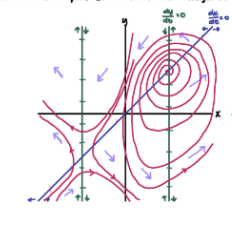
This course gives an introduction to the theory and applications of ordinary differential equations. We explore different applications in physics, chemistry, biology, engineering and social sciences. We learn to predict the behavior of a particular system described by differential equations by finding exact solutions, making numerical approximations, and performing qualitative and geometric analysis. Specific topics may include solutions to first order equations and linear systems, existence and uniqueness of solutions, nonlinear systems and linear stability analysis, forcing and resonance, Laplace transforms. Prerequisites: MTH 112, MTH 212 and MTH 211 (recommended) or PHY 210, or equivalent.
- Instructor: Becca Thomases
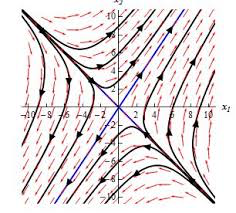
This course gives an introduction to the theory and applications of ordinary differential equations. We explore different applications in physics, chemistry, biology, engineering, and social sciences. We learn to predict the behavior of a particular system described by differential equations by finding exact solutions, making numerical approximations, and performing qualitative and geometric analyses. Specific topics include solutions to first-order equations and linear systems, existence and uniqueness of solutions, nonlinear systems and linear stability analysis, forcing and resonance, Laplace transforms.
- Instructor: Candice Price
Students write the material that becomes the textbook, and present it in class.
Analysis is the theory behind Calculus.
- Instructor: Christophe Golé
- Instructor: Zachary Winkeler
- Instructor: Julianna Tymoczko
- Instructor: Julianna Tymoczko
- Instructor: Christophe Golé
- Instructor: Jim Henle
- Instructor: Rajan Mehta
- Instructor: David Meyer
- Instructor: David Meyer
- Instructor: Patricia Cahn
- Instructor: Gwen Spencer
- Instructor: Candice Price
- Instructor: Rajan Mehta
- Instructor: Zachary Winkeler
- Instructor: Julianna Tymoczko
- Instructor: Candice Price
- Instructor: Zachary Winkeler
- Instructor: Rajan Mehta
- Instructor: Julianna Tymoczko
- Instructor: Admin User
- Instructor: Julianna Tymoczko
- Instructor: Julianna Tymoczko
- Instructor: Julianna Tymoczko
- Instructor: Geremias Polanco
- Instructor: Maeve Sterbenz
- Instructor: Lemuel Gurtowsky
- Instructor: Lemuel Gurtowsky
- Instructor: Maeve Sterbenz
- Instructor: Maeve Sterbenz
- Instructor: Maeve Sterbenz
- Instructor: Phil Acimovic
- Instructor: Anna Goudreau
- Instructor: Maeve Sterbenz
- Instructor: Judith Rosenberger
- Instructor: Brian Rasmussen
- Instructor: Dennis Miehls
- Instructor: Kathryn Basham
- Instructor: Joanne Corbin
- Instructor: Judith Rosenberger
- Instructor: Kathryn Basham
- Instructor: Joanne Corbin
- Instructor: Kathryn Basham
- Instructor: Kathryn Basham
- Instructor: Joanne Corbin
- Instructor: Tina Wildhagen
- Instructor: Tina Wildhagen
- Instructor: Tina Wildhagen
- Instructor: Tina Wildhagen
- Instructor: Joanne Corbin
- Instructor: Arlene Montgomery
- Instructor: Arlene Montgomery
- Instructor: Arlene Montgomery
- Instructor: Joanne Corbin
- Instructor: Martha Hadley
- Instructor: Martha Hadley
- Instructor: Martha Hadley
- Instructor: Martha Hadley
- Instructor: Adrianne Andrews
- Instructor: Joanne Corbin
- Instructor: Adrianne Andrews
- Instructor: Janice Edwards
- Instructor: Adrianne Andrews
- Instructor: Martha Hadley
- Instructor: Joanne Corbin
- Instructor: Martha Hadley
- Instructor: Martha Hadley
- Instructor: Kimberly Thompson-Schinagle
- Instructor: Elizabeth Spelman
- Instructor: Elizabeth Spelman
- Instructor: Joshua Wood
What is language? What does it mean for words to have meaning? What is the meaning of words? These are the fundamentalquestions in the philosophy of language. We start with the question: what kind of meaning do linguistic expressions have? Do thesigns we use to communicate concern thoughts we want to express, as seventeenth-century philosopher John Locke thought? Ordo the words we use to communicate concern things in the world, as philosophers in the nineteenth and twentieth centuries suchas John Mill, Gottlieb Frege, Bertrand Russell, and Saul Kripke maintain? We look at what kinds of meaning specific linguisticexpressions have, such as names and definite descriptions, e.g., “The King of France.” We examine syntax questions: how themeaning of sentences depends on the meaning of their parts.
Second, we turn to the question of linguistic meaning in general. We look at the conception of language and meaning proposed byW.V. O. Quine and developed by Donald Davidson.
We examine Quine and Davidson’s views on what it is to make sense of language. We also look at Quine’s famous attack on theanalytic-synthetic distinction—the issue of whether statements are true or false by meaning alone, e.g., “All bachelors areunmarried,” or in virtue of experience, e.g., “It is raining now.”
The third issue we try to understand more profoundly is the role of language in our lives. We look at J. L. Austin’s speech act theory,according to which the fundamental thing we must understand about any language is how a speaker uses it. Then, we look at H.P.Grice’s attempt to explain what speakers mean by the expressions they use to communicate.
The fourth issue we discuss is the evolution of language. Did language evolve from the primate brain? Do non-human animals havea system of communication we could call language?
The fifth issue we discuss is metaphor. What are metaphors? How do we use metaphors to understand our lives?
The sixth issue we discuss concerns the effect of our words on others. We examine the nature of slurs, racial epithets, and silencing speech, among other topics.
- Instructor: Angela Curran
- Instructor: Jeffry Ramsey
- Instructor: Nalini Easwar
- Instructor: Nathanael Fortune
- Instructor: Travis Norsen
- Instructor: Joyce Palmer-Fortune
- Instructor: Jennifer Beichman
- Instructor: Gary Felder
- Instructor: Joyce Palmer-Fortune
- Instructor: Daniel Schultheis
- Instructor: Doreen Weinberger
- Instructor: Jennifer Beichman
- Instructor: Joyce Palmer-Fortune
- Instructor: Will Raven
- Instructor: Daniel Schultheis
- Instructor: Doreen Weinberger
- Instructor: Joyce Palmer-Fortune
- Instructor: Nalini Easwar
- Instructor: Courtney Lannert
- Instructor: Travis Norsen
- Instructor: Joyce Palmer-Fortune
- Instructor: Will Raven
- Instructor: Doreen Weinberger
- Instructor: Anne Jaskot
- Instructor: Travis Norsen
- Instructor: Joyce Palmer-Fortune
- Instructor: Will Raven
- Instructor: Doreen Weinberger
- Instructor: Nathanael Fortune
- Instructor: Thomas Gralinski
- Instructor: Travis Norsen
- Instructor: Joyce Palmer-Fortune
- Instructor: Peter Sapira
- Instructor: Nalini Easwar
- Instructor: Nathanael Fortune
- Instructor: Travis Norsen
- Instructor: Joyce Palmer-Fortune
- Instructor: Joyce Palmer-Fortune
- Instructor: Joyce Palmer-Fortune
- Instructor: Meg Thacher
- Instructor: Nalini Easwar
- Instructor: Joyce Palmer-Fortune
- Instructor: Will Raven
- Instructor: Doreen Weinberger
- Instructor: Nalini Easwar
- Instructor: Gary Felder
- Instructor: Travis Norsen
- Instructor: Joyce Palmer-Fortune
- Instructor: Will Raven
- Instructor: Doreen Weinberger
- Instructor: Gary Felder
- Instructor: Gary Felder
- Instructor: Joyce Palmer-Fortune
- Instructor: Casey Berger
- Instructor: Gary Felder
- Instructor: Travis Norsen
- Instructor: Joyce Palmer-Fortune
- Instructor: Doreen Weinberger
- Instructor: Gary Felder
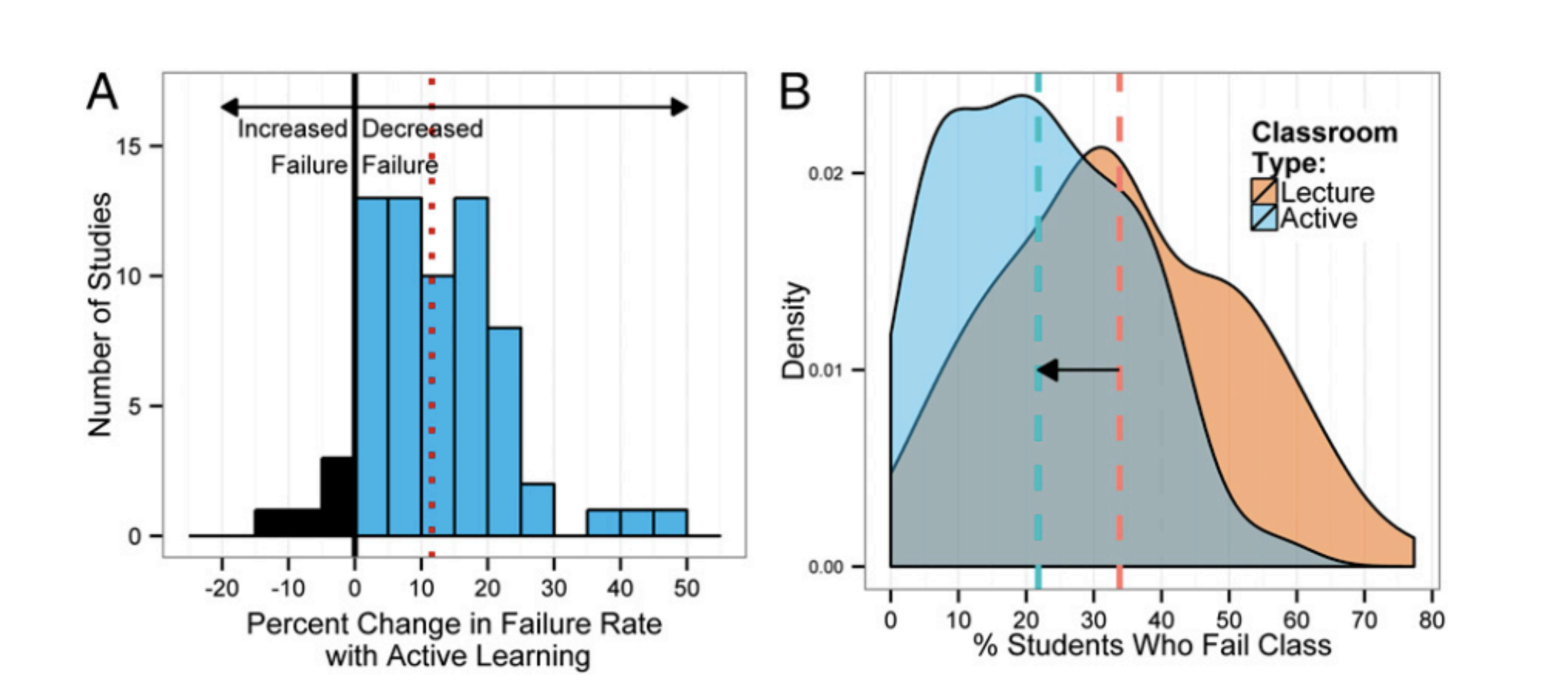
- Instructor: Joyce Palmer-Fortune
- Instructor: Doreen Weinberger
- Instructor: Doreen Weinberger
- Instructor: Joyce Palmer-Fortune
- Instructor: Gary Felder

- Instructor: Gary Felder
- Instructor: Joyce Palmer-Fortune
- Instructor: Courtney Lannert
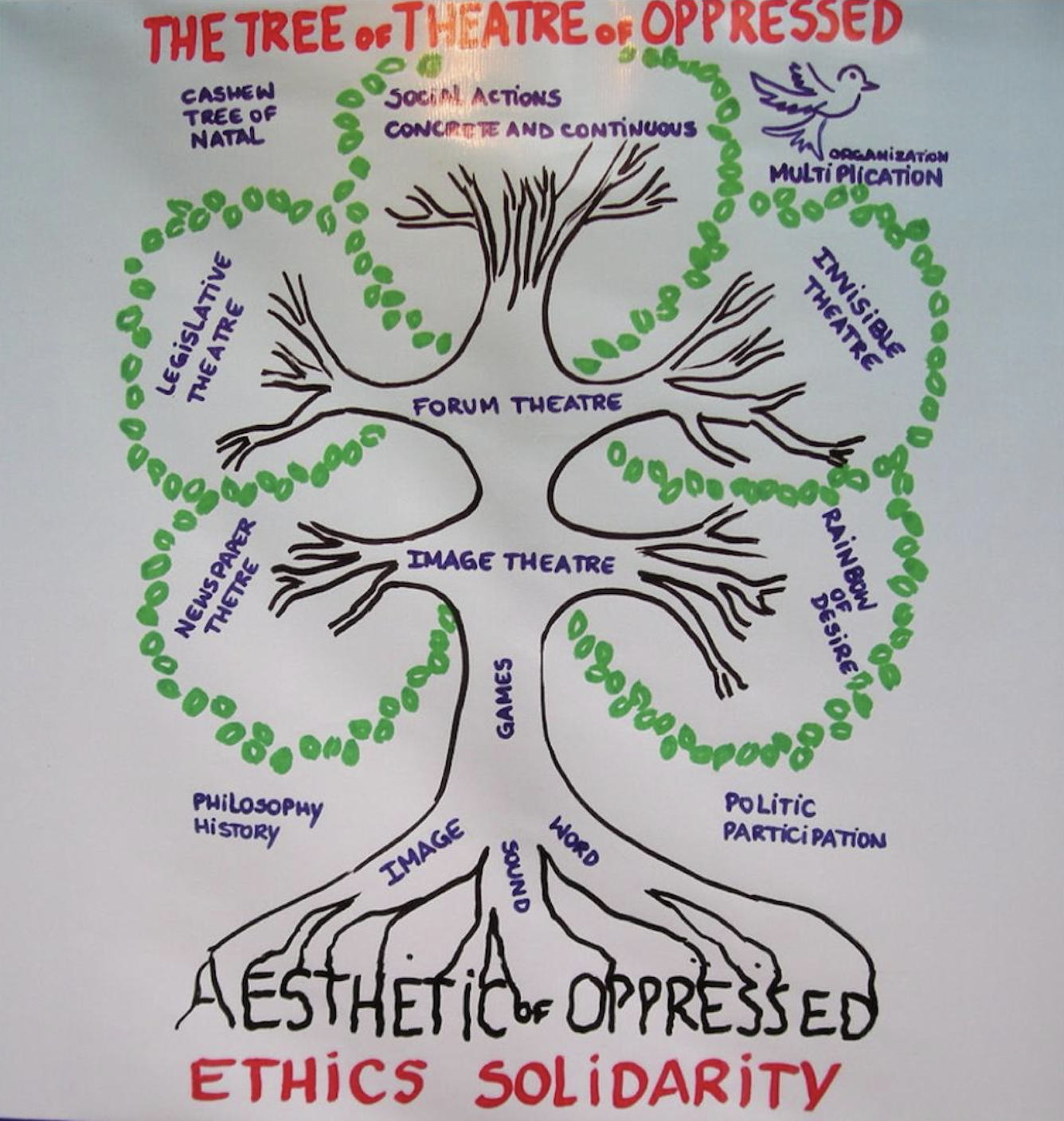
- Instructor: Simone Gugliotta
- Instructor: Kirk Woodring
- Instructor: Kirk Woodring
- Instructor: Kirk Woodring
- Instructor: Kirk Woodring
- Instructor: Kirk Woodring
- Instructor: Kirk Woodring
- Instructor: Kirk Woodring
- Instructor: Mary Olson
- Instructor: Mary Olson
- Instructor: Mary Olson
- Instructor: Laura Ramos
- Instructor: Sharyn Zuffelato
- Instructor: Mary Olson
- Instructor: Mary Olson
We will examine the role that prejudice, misogyny, heteronomativity, cisnormativity, transphobia, racism and mental health stigma play in the lives of trans people and their social workers. We will explore central issues for this population such as suicide, and effective ways to address it in treatment. This course draws from psychoanalytic literature, trans and queer theory, and critical race theory as applied to anti-oppressive clinical practice and will be taught from a cis-gendered perspective when working with trans clients. We will have access to trans identified clinicians, academics and community workers supporting this course remotely.
We will use clinical composites that disguise session material as well as drawing on movie characters to bring client concerns to life while maintaining confidentiality in a world where confidentiality is often misaddressed. We will also integrate the voices of trans and gender non-conforming clients/clinicians wherever possible. We will particularly emphasize the safer and more effective use of the clinician’s self (for instance countertransference) to prevent and work through transphobic enactments/injuries that when left unprocessed could lead to treatment derailment/impasse.
- Instructor: Mischa Peck
- Instructor: Marco Posadas
- Instructor: Cara Segal
- Instructor: Cara Segal
- Instructor: Mamta Dadlani
- Instructor: Paul Gitterman
- Instructor: Paul Gitterman
- Instructor: Alison Berman
- Instructor: Mamta Dadlani
- Instructor: Kurt White
- Instructor: Paul Gitterman
- Instructor: Kurt White
- Instructor: Alison Berman
- Instructor: Alison Berman
- Instructor: Kurt White
- Instructor: Alison Berman
- Instructor: Peggy O'Neill
- Instructor: Robert Simpson Jr
- Instructor: Paul Gitterman
- Instructor: Raymond Rodriguez
- Instructor: Monique Holsey-Hyman
- Instructor: Alison Berman
- Instructor: Paul Gitterman
- Instructor: Peggy O'Neill
- Instructor: Paul Gitterman
- Instructor: Paul Gitterman
- Instructor: Raymond Rodriguez
- Instructor: Kurt White
- Instructor: Paul Gitterman
- Instructor: Kurt White
- Instructor: Liz Espinoza
- Instructor: Kurt White
- Instructor: Alison Berman
- Instructor: Kurt White
- Instructor: Monique Holsey-Hyman
- Instructor: Robert Simpson Jr
- Instructor: Kurt White
Theory and applications of regression techniques; linear and nonlinear multiple regression models, residual and influence analysis, correlation, covariance analysis, indicator variables and time series analysis. This course includes methods for choosing, fitting, evaluating and comparing statistical models and analyzes data sets taken from the natural, physical and social sciences.
- Instructor: Kaitlyn Cook
Theory and applications of regression techniques; linear and nonlinear multiple regression models, residual and influence analysis, correlation, covariance analysis, indicator variables and time series analysis. This course includes methods for choosing, fitting, evaluating and comparing statistical models and analyzes data sets taken from the natural, physical and social sciences.
- Instructor: Kaitlyn Cook
- Instructor: William Hopper
Theory and applications of regression techniques; linear and nonlinear multiple regression models, residual and influence analysis, correlation, covariance analysis, indicator variables and time series analysis. This course includes methods for choosing, fitting, evaluating and comparing statistical models and analyzes data sets taken from the natural, physical and social sciences.
- Instructor: Kaitlyn Cook
According to the U.S. Census Bureau, about 80% of the U.S. population lived in urban areas in 2020. Cities are prime research sites and laboratories to analyze everyday 21st-century American life, as many of Americans’ identities and daily lives are strongly tied to urban spaces and shaped by their economic, social, and cultural power in cities. This course connects macro-level processes, including global forces, politics, and economy to micro-level daily life, such as social interactions among city dwellers in both global cities and small towns.
This course is designed to help students develop both theoretical understanding and empirical analysis. Theoretical discussions of the emergence of modern cities both in Europe and in North America during the industrial revolution by urban theorists Engels, Simmel, Tonnies and Benjamin are emphasized. Students learn how cities were understood not only as a site for production, but also a driving force for modern consumption and colonial expansion by looking at department stores and world fairs in Europe and in the U.S. Then, students move to explore the U.S. context through Chicago School scholars’ ecological perspectives, and discuss how and why these scholars used the city as a laboratory to analyze modern social life in America.
This course particularly focuses on contemporary urban issues in American cities, starting with the post-war era. Why did whites leave cities for suburbia? Who was left behind in cities? What caused urban unrest in the 1960s? What did urban America lose during that time? By taking new urban sociological approaches into account, students will conceptualize the relationships among the state, economy and urban form in order to understand urban America.
Despite the focus on American cities, this course also underscores global and transnational perspectives. From immigrants and refugees who bring their own culture to the presence of global/transnational corporations, most U.S. cities are global entities, and urban lives are intricately tied to globalization and transnational practices. Yet we, as urban dwellers, whether in big cities or in small towns, do not know, and often care not to see, the dark side of global consumption. This course aims to open this discussion about how we connect the micro-level of our social interactions, consumption, and daily lives to macro-levels of the progress, global economic forces, politics and culture. Topics that will be covered include: modernity and modern cities, urbanism as a way of American life, critical urban theory, poverty and ghettos, urban ethnography, gentrification and displacement, urban branding, global cities, immigration and gateways, new destinations, ethnic enclaves, and financial crisis and the right to the city movement.
- Instructor: Jinwon Kim

Course Description and Goals
“The academy is not paradise. But learning is a place where paradise can be created. The classroom, with all its limitations, remains a location of possibility. In that field of possibility we have the opportunity to labour for freedom, to demand of ourselves and our comrades, an openness of mind and heart that allows us to face reality even as we collectively imagine ways to move beyond boundaries, to transgress. This is education as the practice of freedom.” (bell hooks in Teaching to Transgress, 1994, p. 207)
Drawing from bell hook’s inspiring quote above, this course introduces you to the vibrant field of Sociology of Gender and Globalization and its unique interdisciplinary perspectives, borrowing insights from Sociology; Women, Gender, Sexuality Studies; Anthropology; Economics, Politics and so on. This 200-level course moves beyond geographical and disciplinary boundaries, to engage with the key dimensions of global restructuring and globalization through the lens of gender, sexuality, race, class, ethnicity, and North-South relations. We will study how various modes of oppression and inequalities intersect in global manufacturing, supply chains, and in the transnational politics of representation and access in global media, religion, culture, war, and dissenting spaces. Questions that we will interrogate throughout the semester include: What is globalization and how and why is it a contested concept? Is globalization a new process? How can globalization be understood as a social, cultural, political, and ecological process and not just as a technological-economic process? How are structures of identity and oppression i.e., gender, race, ethnicity, class, sexuality, nation, religion, ability, and other forms of difference, interwoven with globalization? How do biological, cultural, historical, and political frameworks shape knowledge and processes of globalization? In exploring these questions, the course incorporates sources ranging from social science research, creative non-fiction, films/documentaries, art, media, and popular culture. Topics may include transnational feminisms, gendered labor and the global economy, feminist and queer theory, reproductive politics and globalization, carceral politics, rights-based advocacy, visual cultures.
This course will accomplish its goals by:
- Engaging students in pluralistic perspective-taking and awareness of the relationship among society, self, and others
- Providing opportunities to develop and practice the skills of critical thinking, reasoning, communication, and integration of knowledge and perspectives, including:
● Communicating persuasively and effectively in public speaking and writing
● Working collaboratively and creating safe and kind spaces for each other to teach and learn in
- Students will be expected to be self-reflective and draw from their own identities and global social issues affecting their young adult lives, using theoretical concepts and language from the course. Please remember, using personal experiences to understand academic concepts is valid and important – as the famous feminist saying goes - The Personal is Political! We should strive to use these as examples to illustrate or raise questions about readings and course debates rather than substituting anecdotes for critical thinking.
READINGS
You do not need to purchase any readings/books for this course. All reading materials will be on the course’s Moodle website and all videos will be linked on the syllabus. You would be able to access the videos required for the course for free through YouTube or the Smith Kanopy service (https://www.kanopy.com/en/smith/). The course schedule below lists the readings/videos we will cover each class day during the semester.
- Instructor: Debadatta Chakraborty

The course will introduce clinical social work practice by addressing the fundamental purposes, historical and ongoing debates, functions, and practice methods. Links to clinical social work practice with groups are made in this course in addition to social work theory (including psychological and social theories), issues related to social policy, agency and community contexts, and advocacy work, as well as research (e.g., empirical evidence, evaluation).
This 10-week course is organized by three broad areas of social work practice competence:
- Principles of clinical social work practice
- Clinical competencies in the beginning phase of social work practice
- Introduction to clinical competencies in the middle and ending phases of practice
First, this course will focus on social work values, ethics, and other key principles, in clinical social work practice. Attention will be given to the clinician’s capacity for an intentional and effective use of self as well as understanding and addressing complex and intersecting nature of power and various social locations within a therapeutic process.
Next, the course will address foundational practice competencies required in the beginning phase of practice, namely interviewing skills for relationship building, assessment, case formulation, goal setting, contracting, and treatment planning. Understanding that much of clinical practice was built on Euro-centric, western, colonial epistemologies, instructors will invite students to critically appraise and identify ways to engage clinical skills responsibly from racial and social justice perspectives.
Finally, the last part of this 10-week course will introduce students to the competences relevant to the middle phase of practice, such as common tasks and processes involved with this phase of work, an introduction to several intervention models of working with individuals and families, case management (e.g., working with collaterals, resource development, referral), as well as the ending phase of practice, such as practice monitoring, evaluation, and termination. While several conventional intervention models (e.g., psychodynamic, cognitive-behavioral, trauma work) will be introduced, the course will also engage students in critically examining the utility and limits of these models, with a goal of centering practice decisions on the needs and voices of clients from marginalized communities. A variety of pedagogical methods, including lectures, discussions, the use of media, case-based learning, mindfulness exercises and role-plays, will be used to introduce practice principles, theoretical and empirical literature and competency-based skills. Throughout the course, student learning will be scaffolded, moving from learning aboutpractice to doing practice through various experiential methods, such as mindfulness exercises, case-based discussion and peer-to-peer role plays. Case materials used for discussion and role-plays will reflect individual and family practice in a range of service settings with a focus on the social and structural contexts surrounding marginalized communities.
- Instructor: Kenta Asakura
- Instructor: Paul Gitterman
- Instructor: Hugo Kamya
- Instructor: Beth Prullage
- Instructor: Paul Gitterman
- Instructor: Megan Harding
- Instructor: Peggy O'Neill
- Instructor: Mark Williams
- Instructor: Paul Gitterman
- Instructor: Megan Harding
- Instructor: Anthea Kim
- Instructor: Peggy O'Neill
- Instructor: Malcolm Pradia
- Instructor: Christopher Watkins
- Instructor: Zachary Wigham
- Instructor: Mark Williams

- Instructor: Hugo Kamya
- Instructor: Malcolm Pradia

- Instructor: Hugo Kamya
- Instructor: Malcolm Pradia
- Instructor: Paul Gitterman
- Instructor: Megan Harding
- Instructor: Anthea Kim
- Instructor: Peggy O'Neill
- Instructor: Malcolm Pradia
- Instructor: Christopher Watkins
- Instructor: Zachary Wigham
- Instructor: Mark Williams
- Instructor: Paul Gitterman
- Instructor: Hugo Kamya
- Instructor: Hugo Kamya
- Instructor: Yolanda Ramos

- Instructor: Paul Gitterman
- Instructor: Megan Harding
- Instructor: Anthea Kim
- Instructor: Peggy O'Neill
- Instructor: Malcolm Pradia
- Instructor: Christopher Watkins
- Instructor: Zachary Wigham
- Instructor: Mark Williams
- Instructor: Hugo Kamya
- Instructor: Beth Prullage

- Instructor: Hugo Kamya
- Instructor: Malcolm Pradia

- Instructor: Hugo Kamya
- Instructor: Christopher Watkins
- Instructor: Tandeka Guilderson
- Instructor: Hugo Kamya
- Instructor: Paul Gitterman
- Instructor: Megan Harding
- Instructor: Anthea Kim
- Instructor: Peggy O'Neill
- Instructor: Malcolm Pradia
- Instructor: Christopher Watkins
- Instructor: Zachary Wigham
- Instructor: Mark Williams
- Instructor: Paul Gitterman
- Instructor: Megan Harding
- Instructor: Alex Kim
- Instructor: Anthea Kim
- Instructor: Peggy O'Neill
- Instructor: Malcolm Pradia
- Instructor: Christopher Watkins
- Instructor: Zachary Wigham
- Instructor: Mark Williams

- Instructor: Hugo Kamya
- Instructor: Malcolm Pradia

- Instructor: Hugo Kamya
- Instructor: Christopher Watkins
- Instructor: Hugo Kamya
- Instructor: Yolanda Ramos

- Instructor: Paul Gitterman
- Instructor: Megan Harding
- Instructor: Anthea Kim
- Instructor: Peggy O'Neill
- Instructor: Malcolm Pradia
- Instructor: Christopher Watkins
- Instructor: Zachary Wigham
- Instructor: Mark Williams
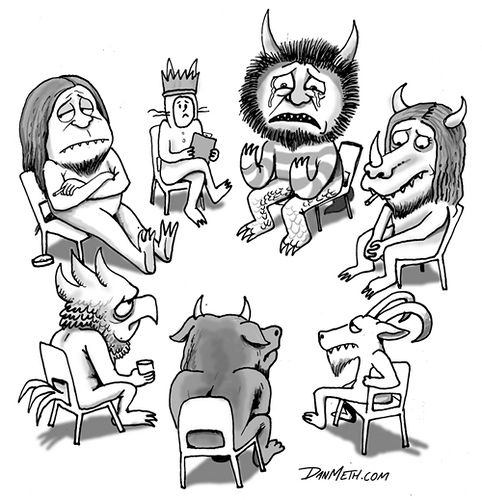
Welcome, all!
Group Theory and Practice introduces students to the history of social group work and focuses on applying the values, skills and knowledge of the social work profession to a variety of groups. Theoretical and practical principles of group work are introduced to enhance understanding and use of “group” as a complex system of roles and interrelationships. Students learn how to construct task and treatment groups and how to mobilize the resources of existing groups. Primary focus is given to those dynamics that are common to all groups, and students will begin to explore how issues of difference (gender, race, sexual orientation, age, culture, class, ability, spirituality) affect group processes.
- Instructor: Paul Gitterman
- Instructor: Megan Harding
- Instructor: Anthea Kim
- Instructor: Peggy O'Neill
- Instructor: Malcolm Pradia
- Instructor: Christopher Watkins
- Instructor: Zachary Wigham
- Instructor: Mark Williams
- Instructor: Davis Chandler
- Instructor: Brandyn McKinley
- Instructor: Shannon Sennott
- Instructor: Shalini Sharma
- Instructor: Ziblim Abukari
- Instructor: Davis Chandler
- Instructor: Megan Harding
- Instructor: Rebecca Ross
- Instructor: Ziblim Abukari
- Instructor: Megan Harding
- Instructor: Rebecca Ross
- Instructor: Brandyn McKinley
- Instructor: Shannon Sennott
- Instructor: Shalini Sharma
- Instructor: Laura Spivack
- Instructor: Shannon Sennott
- Instructor: Ziblim Abukari
- Instructor: Megan Harding
- Instructor: Rebecca Ross
- Instructor: Shalini Sharma
- Instructor: Brandyn McKinley
- Instructor: Brandyn McKinley
- Instructor: Rebecca Ross
- Instructor: Shannon Sennott
- Instructor: Ziblim Abukari
- Instructor: Megan Harding
- Instructor: Rebecca Ross
- Instructor: Shannon Sennott
- Instructor: Erin Baer
- Instructor: Brandyn McKinley
- Instructor: Shannon Sennott
- Instructor: Davis Chandler
- Instructor: Victoria Goldenberg
- Instructor: Brandyn McKinley
- Instructor: Shannon Sennott
- Instructor: Shalini Sharma
- Instructor: Ziblim Abukari
- Instructor: Stephen Bradley
- Instructor: Megan Harding
- Instructor: Jose Hernandez
- Instructor: Rebecca Ross
- Instructor: Ziblim Abukari
- Instructor: Megan Harding
- Instructor: Rebecca Ross
- Instructor: Brandyn McKinley
- Instructor: Brandyn McKinley
- Instructor: Shannon Sennott
- Instructor: Shalini Sharma
- Instructor: Ziblim Abukari
- Instructor: Megan Harding
- Instructor: Rebecca Ross
- Instructor: Shannon Sennott
- Instructor: Brandyn McKinley
- Instructor: Rebecca Ross
- Instructor: Shannon Sennott
- Instructor: Silvia Balta Espinal
- Instructor: Tanya Greathouse
- Instructor: Rebecca Ross
- Instructor: Tanya Greathouse
- Instructor: Rebecca Ross
- Instructor: Tanya Greathouse
- Instructor: Rebecca Ross
- Instructor: Liat Shklarski
- Instructor: Tanya Greathouse
- Instructor: Rebecca Ross
- Instructor: Shannon Sennott
- Instructor: Silvia Balta Espinal
- Instructor: Tanya Greathouse
- Instructor: Rebecca Ross
- Instructor: Tanya Greathouse
- Instructor: Rebecca Ross
- Instructor: Tanya Greathouse
- Instructor: Rebecca Ross
- Instructor: Liat Shklarski
- Instructor: Mamta Dadlani
- Instructor: J.J. Mull
- Instructor: Mamta Dadlani
- Instructor: Leah Jikurashvili
- Instructor: Mamta Dadlani
- Instructor: Elise Manning
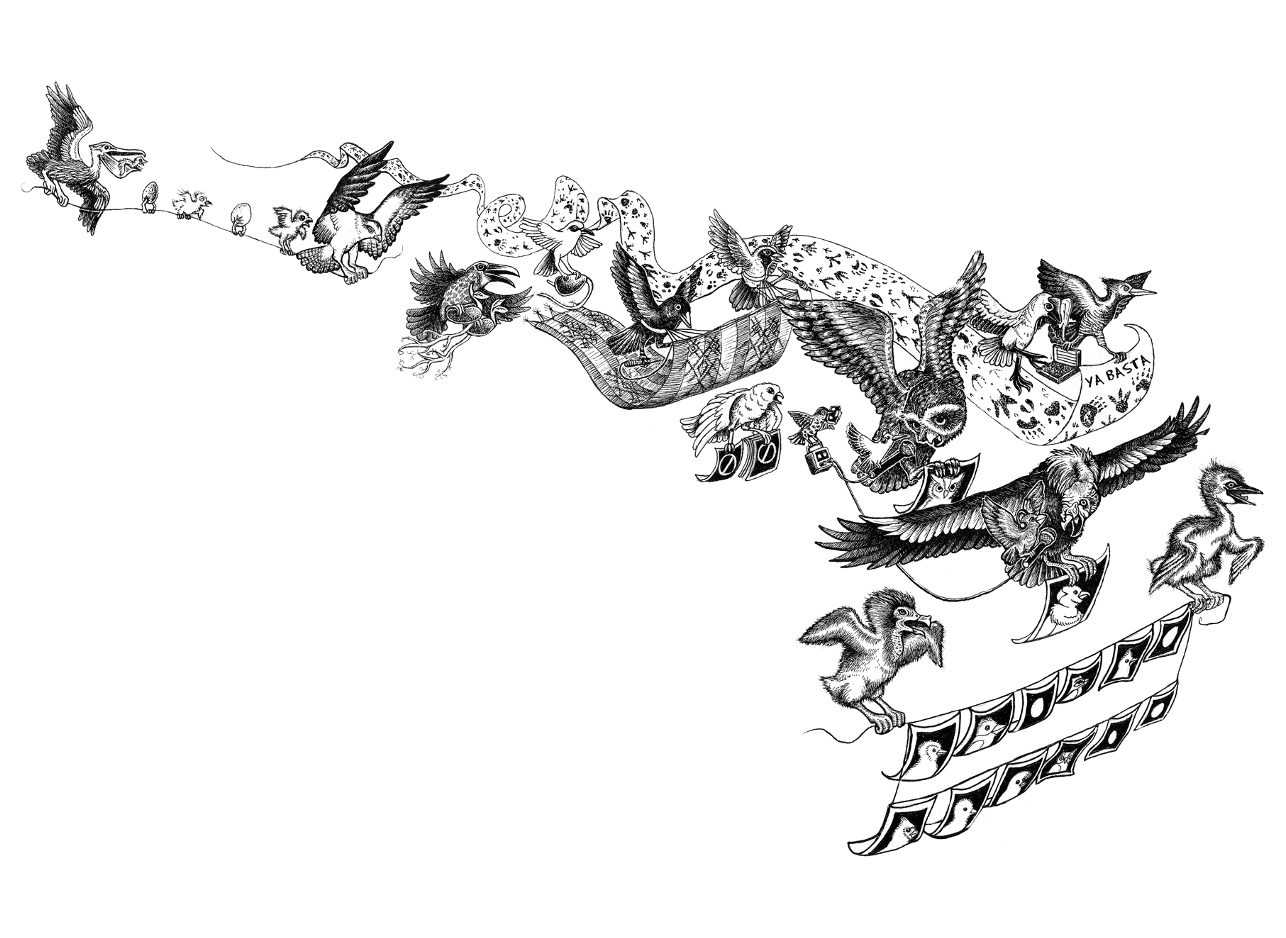
- Instructor: Mamta Dadlani
- Instructor: Este Orantes Migoya
- Instructor: Mamta Dadlani
- Instructor: Elise Manning
- Instructor: Mamta Dadlani
- Instructor: Janae Peters

The required First Year Practicum Learning Seminar is designed to help students successfully enter into and engage in the learning of the first-year internship. The seminar will address issues related to the Essential Attributes and Abilities and is designed to support students in achieving the defined learning objectives and to deepen their understanding and integration of content from summer coursework. Students are expected to use the seminar as a forum to discuss their clinical work and to actively integrate theory and practice as relevant to their internship setting. The course meets for 10 sessions September-April for 2 hours/month.
- Instructor: Katya Cerar
- Instructor: Alexis Evwynne
- Instructor: Shveta Kumaria

The required First Year Practicum Learning Seminar is designed to help students successfully enter into and engage in the learning of the first-year internship. The seminar will address issues related to the Essential Attributes and Abilities and is designed to support students in achieving the defined learning objectives and to deepen their understanding and integration of content from summer coursework. Students are expected to use the seminar as a forum to discuss their clinical work and to actively integrate theory and practice as relevant to their internship setting. The course meets for 10 sessions September-April for 2 hours. In October and January we meet two times each for two hours.
- Instructor: Katya Cerar
- Instructor: Alexis Evwynne
- Instructor: Shveta Kumaria
- Instructor: Kim Monson
- Instructor: Anderson Al Wazni
- Instructor: Tanya Greathouse
- Instructor: Megan Harding
- Instructor: JaLisa Williams
- Instructor: JaLisa Williams
- Instructor: Davis Chandler
- Instructor: Tanya Greathouse
- Instructor: Megan Harding
- Instructor: Shannon Sennott
- Instructor: Maxine Notice
- Instructor: Leslie Anderson
- Instructor: Tanya Greathouse
- Instructor: Megan Harding
- Instructor: Sam Nunke
- Instructor: Davey Shlasko
- Instructor: Tanya Greathouse
- Instructor: Megan Harding
- Instructor: Davey Shlasko
- Instructor: Peggy O'Neill
- Instructor: Alison Sutton-Ryan
- Instructor: Tanya Greathouse
- Instructor: Megan Harding
- Instructor: Jennifer Khaw
- Instructor: JaLisa Williams
- Instructor: Paul Gitterman
- Instructor: Kurt White
- Instructor: Paul Gitterman
- Instructor: Megan Harding
- Instructor: Kurt White
- Instructor: Mark Williams
- Instructor: Kurt White
- Instructor: Annemarie Gockel
- Instructor: Kurt White

This course will focus on the theory and practice of two complementary forms of brief dynamic psychotherapy with adult individuals: Time-Limited Dynamic Psychotherapy (TLDP) and Brief Dynamic Interpersonal Therapy (BDIT). Both treatments are based on psychodynamic / psychoanalytic and developmental theories of personality organization, as well as on theories about the impact of time and time limits on the process of therapy.
- Instructor: Sara Brackenbury
- Instructor: Megan Harding
- Instructor: Mark Williams
- Instructor: Judith Rosenberger
- Instructor: Judith Kay
- Instructor: Kathryn Basham
- Instructor: Tina Wildhagen
- Instructor: Ora Nakash
- Instructor: Marsha Pruett
- Instructor: Karen Saakvitne
- Instructor: Ora Nakash
- Instructor: Karen Saakvitne
- Instructor: Karen Saakvitne
- Instructor: Ora Nakash
- Instructor: Marsha Pruett
- Instructor: Karen Saakvitne
- Instructor: Joanne Corbin
- Instructor: Ora Nakash
- Instructor: Karen Saakvitne
- Instructor: Karen Saakvitne
- Instructor: Arlene Montgomery
- Instructor: Joanne Corbin
- Instructor: Arlene Montgomery
- Instructor: Ora Nakash
- Instructor: Cathleen Morey
- Instructor: Cathleen Morey
- Instructor: Ora Nakash
- Instructor: Marsha Pruett
- Instructor: Megan Harding
- Instructor: Ora Nakash
- Instructor: Rose Sullivan
- Instructor: Martha Hadley
- Instructor: Ora Nakash
- Instructor: Marsha Pruett
- Instructor: Janice Edwards
- Instructor: Joanne Corbin
- Instructor: Janice Edwards
- Instructor: Ora Nakash
- Instructor: Hugo Kamya
- Instructor: Ora Nakash
- Instructor: Jim Drisko
- Instructor: Hugo Kamya
- Instructor: Ora Nakash
- Instructor: Marsha Pruett
- Instructor: Hugo Kamya
- Instructor: Hugo Kamya
- Instructor: Ora Nakash
- Instructor: Marsha Pruett
- Instructor: Joanne Corbin
- Instructor: Ora Nakash
- Instructor: Ora Nakash
- Instructor: Joanne Corbin
- Instructor: Geoffrey Locke
- Instructor: Ora Nakash
- Instructor: Geoffrey Locke
- Instructor: Ora Nakash
- Instructor: Laurie Gillies
- Instructor: Cathleen Morey
- Instructor: Ora Nakash
- Instructor: Marsha Pruett
- Instructor: Cathleen Morey
- Instructor: Cathleen Morey
- Instructor: Ora Nakash
- Instructor: Marsha Pruett
- Instructor: Martha Hadley
- Instructor: Ora Nakash
- Instructor: Joanne Corbin
- Instructor: Martha Hadley
- Instructor: Ora Nakash
- Instructor: Martha Hadley
- Instructor: Joan Lesser
- Instructor: Joan Lesser
- Instructor: Ora Nakash
- Instructor: Marsha Pruett
- Instructor: Joan Lesser
- Instructor: Ora Nakash
- Instructor: Marsha Pruett
- Instructor: Hannah Lord
- Instructor: Hannah Lord
Is White Supremacy a permanent feature of race and gender politics in contemporary U.S. society? How does one appropriately respond to its ideology and political power in the Age of Trumpism, also known as Neo-fascism, understanding that Trumpism may last beyond any presidential election? This course will analyze the history, prevalence, and current manifestations of the white supremacist movement by examining ideological components, tactics and strategies, and its relationship to mainstream politics. We will also research and discuss the relationship between white supremacy and white privilege through liberal and conservative writers and explore how to build a human rights movement (including reproductive justice) to counter the white supremacist movement in the U.S. Students will develop analytical writing and research skills, while engaging in multiple cultural perspectives. By focusing on Native American and African American experiences of white supremacy, the course will be interdisciplinary, covering social sciences, anthropology, history, geography, philosophy, political science, economics, and feminist theory. This class is an entry-level overview of the white supremacist movement in the U.S. Further study is necessary to develop more expertise. The overall goal is to develop the capacity to understand the range of possible responses to white supremacy, both its legal and extralegal forms.
- Instructor: Stacy Blackadar
- Instructor: Nic McGrath
- Instructor: Loretta Ross
- Instructor: Jennifer DeClue

Welcome! "Introduction to Sound Design" introduces students to the theory and practice of theatrical sound design, with additional relevance to sound design for dance and for film and television. The course cultivates sensitivity towards the expressiveness of sound, and the relationship between time, sound, actors, visuals, and narrative. Through script analysis and design projects, students learn the power of sound and music in enhancing stage presentations, acquire skills in creating sound worlds, and apply those skills to collaboration with the production team. Through hands-on exercises in the lab and in the theaters, students also become familiar with recording, editing, organizing, and playback of sound.
- Instructor: Emily Wilson
- Instructor: George Katsaros
- Instructor: Anna Botta
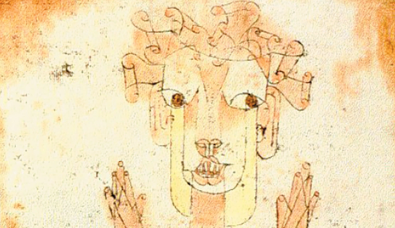
- Instructor: Torleif Persson
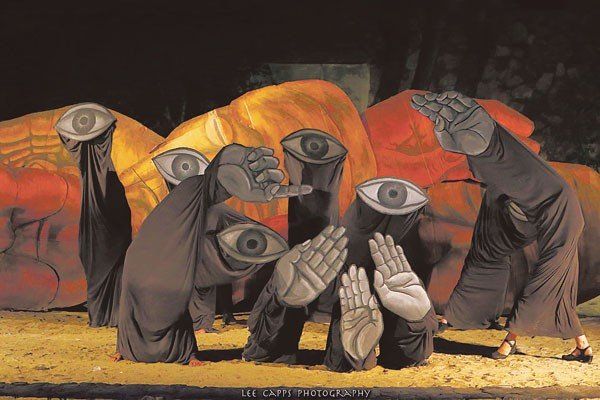
- Instructor: Torleif Persson
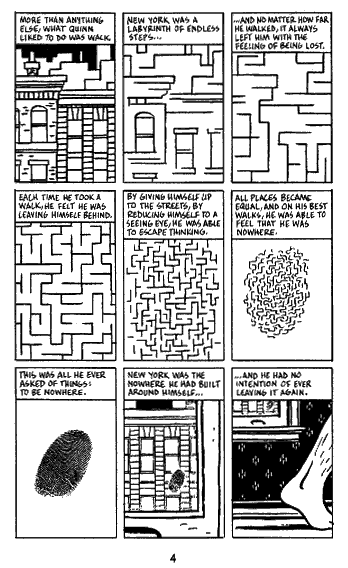
- Instructor: Torleif Persson
- Instructor: Anna Botta
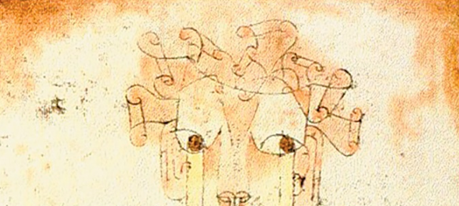
- Instructor: Torleif Persson
- Instructor: Sara Eddy
